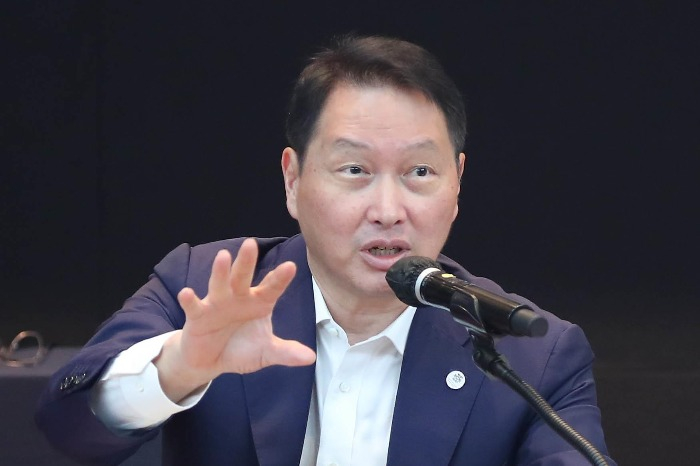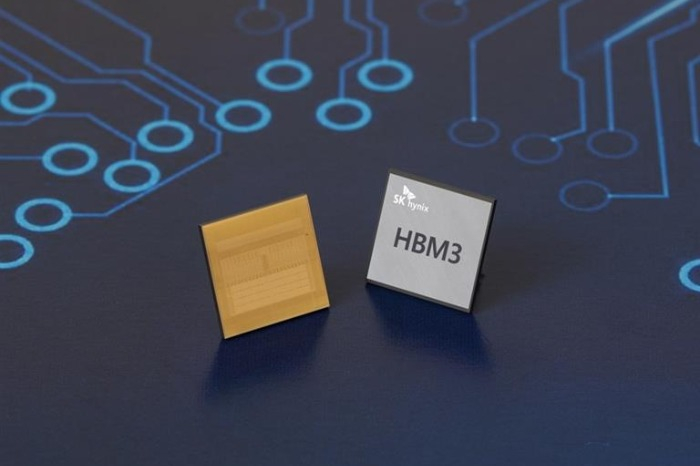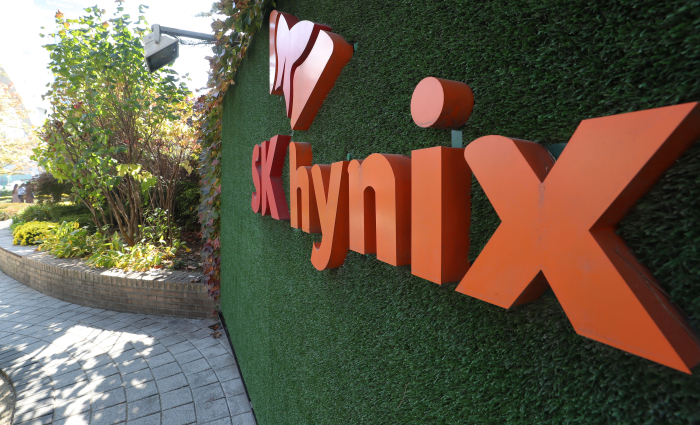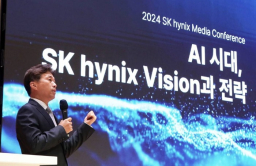-
KOSPI 2577.27 -2.21 -0.09%
-
KOSDAQ 722.52 -7.07 -0.97%
-
KOSPI200 341.49 +0.02 +0.01%
-
USD/KRW 1396 -2.00 0.14%
SK Hynix mulls HBM production in Japan, US
Korean chipmakers
SK Hynix mulls HBM production in Japan, US
Clean energy procurement is the most important factor in selecting a new HBM chip plant, SK Group Chairman says
By
May 24, 2024 (Gmt+09:00)
3
Min read
News+

SK Hynix Inc. is investigating the possibility of building a plant for high-bandwidth memory (HBM), vital for generative artificial intelligence, in other countries such as Japan and the US, if it needs to expand its capacity, its parent group Chairman Chey Tae-won said in an interview with Nikkei.
His remarks came as the South Korean chipmaker is ramping up HBM production to meet surging demand for high-performance chips thanks to the AI boom.
If additional investment is needed to manufacture HBM outside South Korea, it is “investigating the possibility of manufacturing the products in other countries such as Japan and the US,” Chey told Nikkei on Thursday.
In selecting a new chip manufacturing base location, Chey stressed that clean energy procurement is the most important factor in meeting customers’ targets of decarbonizing their entire supply chains.
The interview was conducted in Tokyo on the sidelines of the Future of Asia forum hosted by the Japanese newspaper.

SK Hynix became the first in the world to develop an HBM chip in 2013 and maintains its No. 1 position in that segment.
Earlier this month, its Chief Executive Kwak Noh-jung said during a press conference that its HBM chip production capacity is almost fully booked through next year.
Chairman Chey said that the world’s second-largest memory chipmaker aims to strengthen its ties with Japanese chipmaking equipment makers and chip materials suppliers to produce cutting-edge chips.
To do so, it will consider increasing investment in Japan and opening a new R&D base in Japan.
COLLABORATION WITH KIOXIA
SK Hynix is also mulling investing its affiliated companies in the neighboring country, which may include Japanese memory manufacturer Kioxia Holdings.
SK holds a 34% stake in Kioxia Holdings through an investment vehicle. The two companies have already started collaborating on technology.
“As an investor, we hope for Kioxia to grow. We’ll explore new opportunities that would further cooperation,” Chey said.

During a conference call in January, SK Hynix forecasted its HBM chip sales to increase at a compound annual growth rate of 60% in the next five years thanks to the global AI boom.
At home, it has earmarked a total of 20 trillion won ($14.6 billion) to build a new memory chip manufacturing plant to boost HBM production on a site originally designated to build a NAND flash memory facility in North Chungcheong Province.
While tensions between the US and China increase geopolitical risks, SK Hynix plans to maintain its business in China for the foreseeable future, the chairman added. It operates semiconductor plants there.
Chey, also serving as chairman of the Korea Chamber of Commerce and Industry, noted that the relationship between South Korea and Japan is more complementary than competitive.
The two countries can cooperate in solving common challenges such as declining birthrates and low economic growth, and work together to nurture new business models to reduce their dependence on exports.
He cited energy and the environment as target cooperation areas as the AI boom has sharply increased energy demand.
Specifically, if the two countries jointly purchase liquefied natural gas, they can save costs by at least 2-4%, he noted.
The chairman also suggested abolishing tariffs between the two countries to boost their gross domestic product and consumption figures.
Write to Il-Gue Kim at black0419@hankyung.com
Yeonhee Kim edited this article.
More To Read
-
 Korean chipmakersSK Hynix’s HBM chip orders fully booked; 12-layer HBM3E in Q3: CEO
Korean chipmakersSK Hynix’s HBM chip orders fully booked; 12-layer HBM3E in Q3: CEOMay 02, 2024 (Gmt+09:00)


